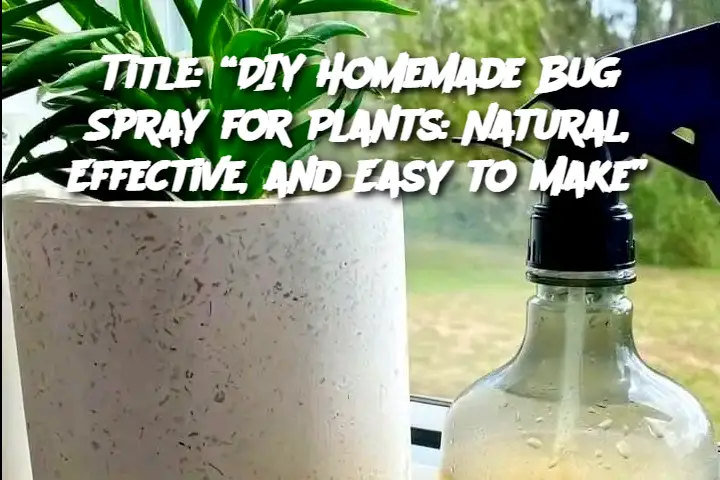- Spot Test: Before applying any homemade spray broadly, test it on one or two leaves or a small portion of the plant. Wait 24 hours and check for signs of leaf burn or discoloration.
- Repeat Applications: Natural sprays often require multiple applications for sustained effectiveness.
- Avoid Direct Sunlight: If possible, apply in the early morning or late afternoon to reduce the chance of leaf burn from sun-exposed, wet leaves.
Recipe 1: Simple Soap Spray
Why It Works
A mild, soapy solution disrupts the insect’s outer layer, causing it to dehydrate. It’s effective against soft-bodied pests like aphids, spider mites, and mealybugs.
Ingredients
- 1 tablespoon mild liquid dish soap (preferably without heavy dyes or fragrances)
- 1 quart (about 1 liter) of water
- Optional: 1 teaspoon vegetable oil (helps the solution stick to leaves and insects)
Instructions
- Combine: In a spray bottle, mix dish soap with water. If adding oil, stir it in last.
- Shake Gently: Ensure everything is well-blended but avoid creating excessive foam.
- Apply: Spray directly on the affected plant leaves and stems, focusing on the underside where pests often hide.
- Reapply: Use once or twice a week, or after rainfall if you’re treating outdoor plants.
Recipe 2: Garlic & Onion Spray
Why It Works
Garlic and onions release sulfur compounds that repel many common garden insects. The pungent aroma also discourages pests.
Ingredients
- 1 small onion, roughly chopped
- 1 head of garlic, peeled
- 2 cups water
- Optional: 1 teaspoon cayenne pepper or chili flakes for extra potency
